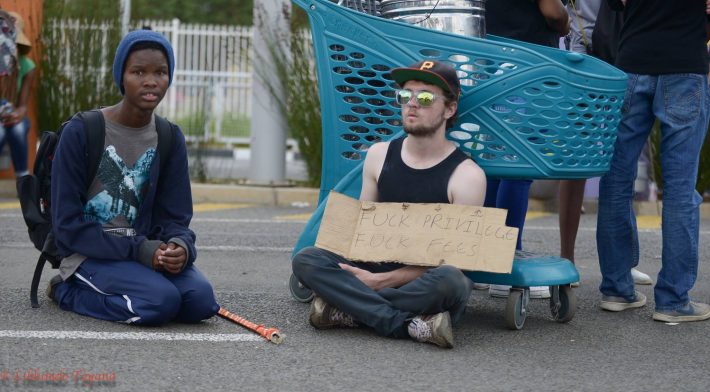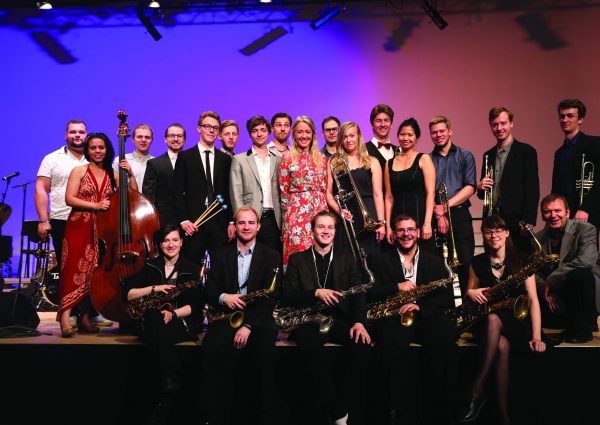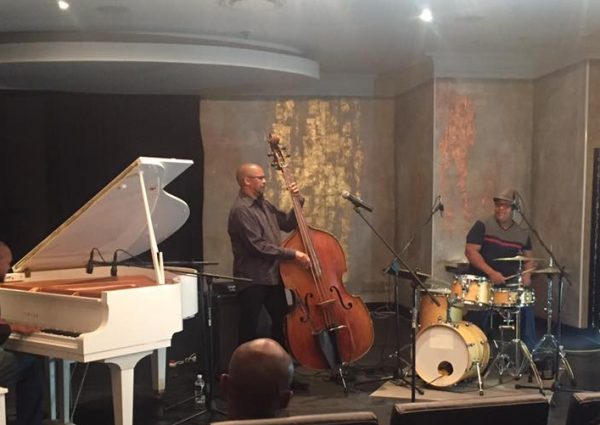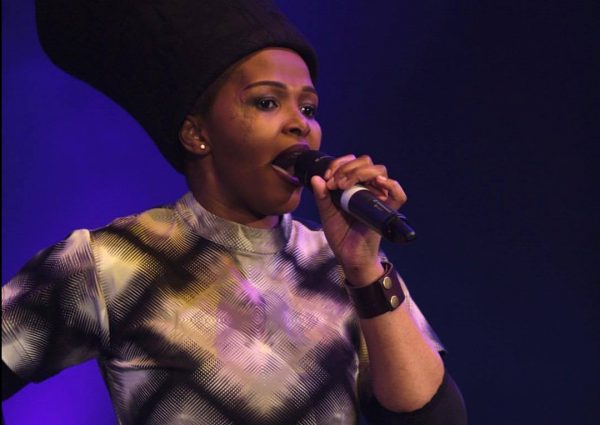Local journalism is a matter of plentiful harvest and few workers, argues Tshiamo Malatji.
First things first
I am certainly a new entrant to journalism in Free State. In fact, I will not pretend to fully understand the fourth estate in this province. However, I am concerned that the rigour of investigation and incision of reportage needs improvement in our region—even an outsider can see that.
To make it clear, I want to present the challenges I have faced over this year that have frustrated my efforts. This could be seen as a criticism of established media houses and reporters who work for them, but I believe they may face similar challenges.
Coverage of the truth
I would describe much of the local reporting I have consumed, both print and digital, as mere coverage.
Bloemfontein (and the wider province) regularly hosts events of regional importance, from theatre productions challenging gang warfare to seminars on women in business. At times, figures of national importance travel to Bloemfontein or new programmes are established. All of these are largely well-reported. However, they are merely events wherein information is given to readers.
This form of coverage is at least acceptable. There is a far more deplorable form of news, and that’s corporate journalism. I am regularly shocked to see a news story that covers the activities of a particular company such as a gala that they host or a programme they initiate. It seems to me that these companies are receiving free advertising. The front page of some newspaper editions are classifieds!
I think there is a place for coverage in the industry, but its current form and quantity is unhinged. I think I understand how we can easily slip into this form of reporting. I have experienced numerous events in Bloemfontein.
In fact, I try to attend close to everything. I go to community meetings, association galas, arts and culture festivities and seminars. I can gain access to these events seamlessly, gather statements, observe the event´s atmosphere and have 300 words penned by the next morning.
There is nothing wrong with this. But this should not be all that we do. We need to investigate incidents that occur in the region and discover the story behind the story. As journalists, it´s our job to start digging beneath the black-tie events and public dialogues. We need to put on our press hats and start seeking.
Plentiful harvest, fewer workers
There is an even greater challenge than just the kind of reporting we achieve. I have witnessed a lack of drive among journalists in our region to find stories. There is an odd silence that describes investigative journalism in our province.
It is odd because any self-respecting journalist would certainly jump at the pool of opportunities before them. Unlike major metropolitans, where there are so many keen correspondents, columnists and other newshounds, Bloemfontein has few active journalists.
So, there should be little pressure to compete for breaking a story. However, perhaps that lack of competition has reduced the edge of breaking news stories. The result is under-reporting of the many newsworthy affairs of this province.
I must admit that I often succumb to these same issues. For the past year, I have journeyed through the professional media space in Bloemfontein. This is due to hosting the daily CUT Parliament current affairs show on campus community radio station, CUT FM.
To survive in the industry, rigorous lessons had to be learned and often, repetitive failure sought to improve my understanding of the media space. Now, I am comfortable sharing what I have learned. If we are to ensure that journalism becomes a serious endeavour in this city, aspiring journalists should welcome the criticism I wish to present.
Writers’ blog
To overcome this writers’ block when it comes to news, I would recommend that we start to seek. Last year, I created a blog to independently cover newsworthy events in the city that had escaped the gaze of existing news houses.
The blog investigated the city’s water crisis, the healthcare system, the subsidies to schools in the region and many more important issues. The blog was able to cover many stories uniquely through doing a fundamental journalistic practice: searching.
For a story that the blog covered on the Mangaung Gariep Water Augmentation Project, I registered as an Interested and Affected Party (I&AP) and received updates on the development of the project. I still receive letters in the post. This gave me direct access to important role players and to more information on the project.
For another story on Land Use changes in the area, I attended a public engagement meeting about the Mangaung Structure Plans. There, I was able to question Mashalaba & Associates Consultants who were managing the plans, and I was able to document the concerns of various role players, including city councillors and architecture firms. The article I published was the only coverage of this event.
Following my success with these stories, I realised that articles on discovered stories were certainly achievable. With a team of editors to correct language and a company’s resources to distribute the articles, it should definitely be possible for any journalist in the city to cover regional affairs.
There is a ferocious curiosity that we need to develop if we wish to break serious news in this region. We must also prepare ourselves for just doing the gritty work. I received great practice during the protests at the University of the Free State.
During that week, I slept seldom; I was constantly finding sources, following leads and spreading any information I had gathered. The work felt drudgery and menial at times, but to see the story break was ample reward.
For example, when News24 broke the story of a student who was temporarily blinded due to injuries sustained during the protests at the University of the Free State´s QwaQwa campus, I felt relieved. His story may never have been told, without someone searching for it. This was just one of the many stories during the protests that needed to be found to be reported.
Uncovering hidden stories
A publication editor that I deeply respect speaks often about ¨hidden histories¨ in relation to our stories. I think there is much hidden in the present—sometimes in plain sight. This has not always been clear to me. It was not clear when I began my current affairs show in February this year and it certainly was not clear when I first spoke over the radio waves in 2013.
At a gala event, an influential friend introduced me as ¨one of Bloemfontein´s great upcoming journalists.¨ I believe he recognised my hunger for hidden stories. Without this drive, we may as well be silent and never pick up a pen. This is a challenge that all journalists in this region must take on.
I am reminded of some powerful words by the late TIME editor, Henry Grunwald. Throughout my career, these will ring in every article I produce, every official I question, every source I phone and every word I pen.
“Journalism can never be silent: that is its greatest virtue and its greatest fault. It must speak, and speak immediately, while the echoes of wonder, the claims of triumph and the signs of horror are still in the air.”
Tshiamo Malatji is the host of CUT Parliament on CUT FM. He is @Tshiatji on Twitter.






